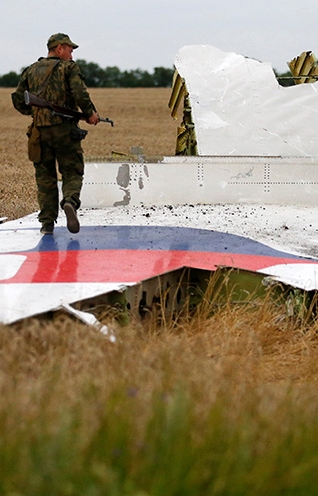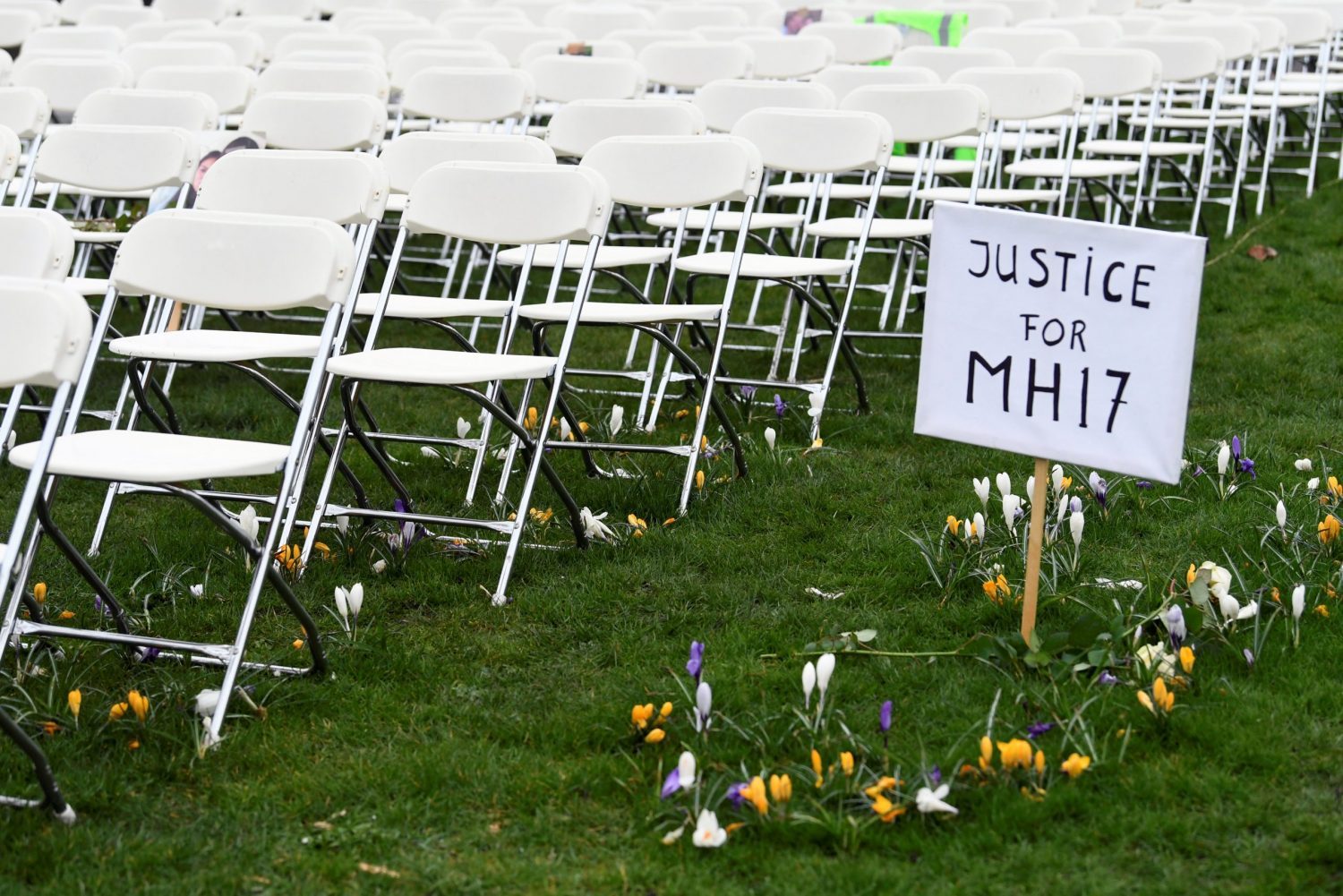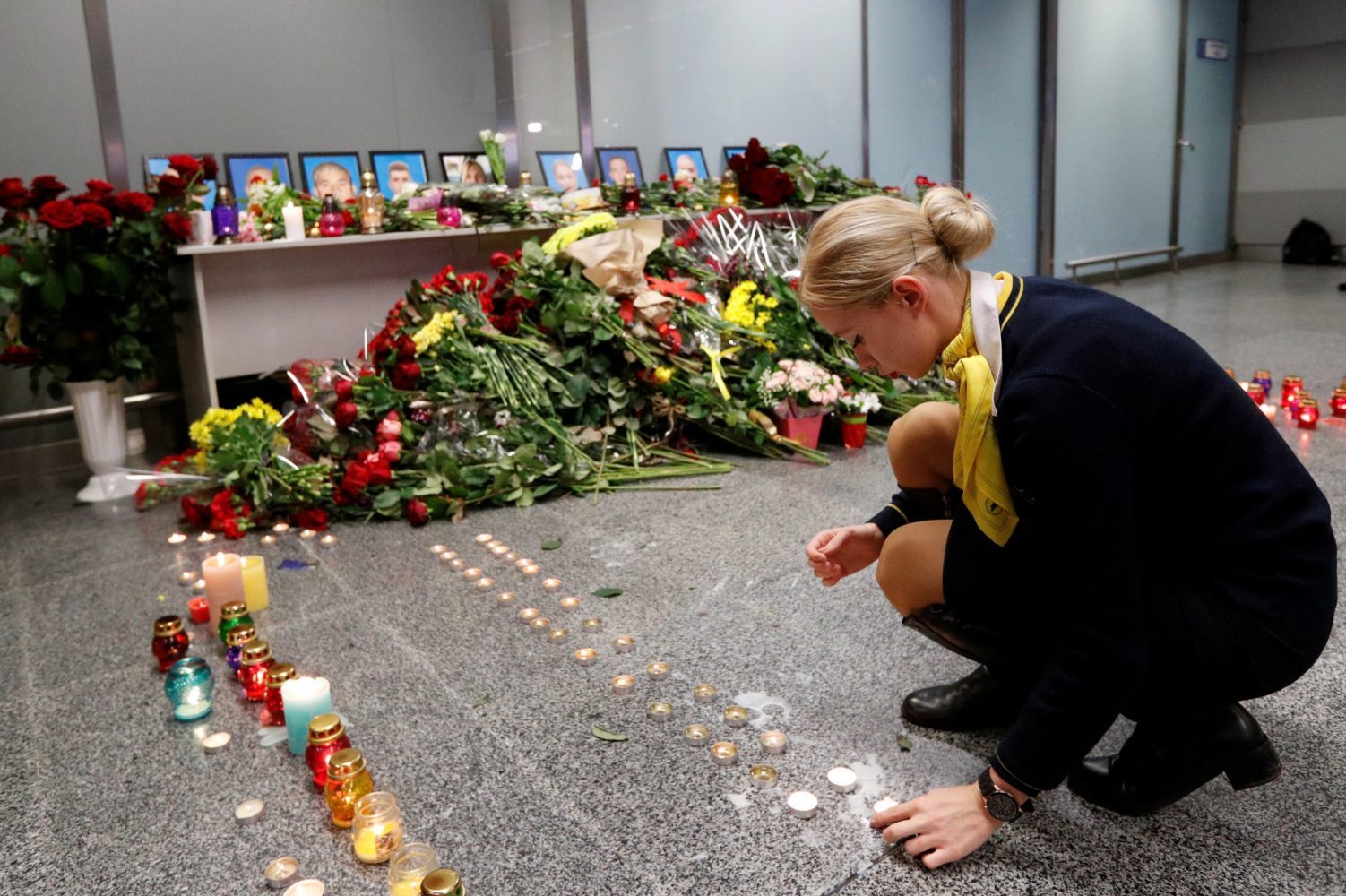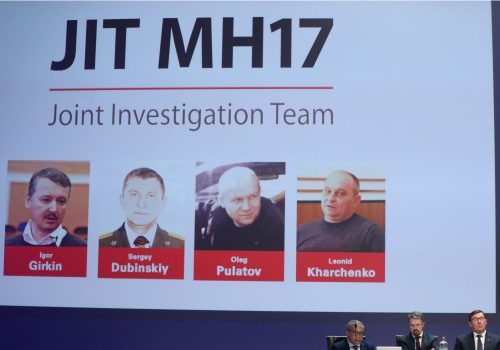The downing of Malaysia Airlines flight 17 (MH17) above eastern Ukraine in 2014 was a catalytic event. Moscow’s invasion and annexation of Crimea and its covert war in the Donbas produced a weak reaction from Europe. In the aftermath of MH17, the Kremlin’s involvement was much harder to ignore. Early evidence indicating Kremlin involvement in shooting down the civilian airliner helped push the European Union to levy severe sanctions on Russia in the summer of 2014. After six years of investigation, Dutch authorities have begun prosecuting those suspected of involvement in the Netherlands. Their comprehensive and deliberate investigation and trial seeks to indict those responsible and hold them to account, and the Dutch government recently announced it is taking Russia to the European Court of Human Rights.
On the occasion of the sixth anniversary, Christo Grozev, lead Russia investigator with Bellingcat, Olena Zerkal, advisor to the CEO of Naftogaz, and Michael Bociurkiw, an independent global affairs analyst, writer, and speaker, join moderator Ambassador John Herbst, director of the Atlantic Council’s Eurasia Center. They evaluate the trial and where matters currently stand, assess how the Kremlin has been held accountable thus far, and discuss what political implications lie ahead.
spotlight

Kremlin aggression in Ukraine
The shoot-down of MH17
It’s been six years since Malaysia Airlines flight 17 (MH17) was shot down over eastern Ukraine, resulting in the deaths of all 298 crew and passengers on board. Court proceedings in the Netherlands began this year at Schiphol Judicial Complex and seek justice by prosecuting the four main suspects in absentia. The trial will hopefully provide a degree of closure for victim families from the Netherlands, Australia, Malaysia, Indonesia, the UK, Germany, Belgium, the Philippines, Canada, and New Zealand.
RELATED experts

The Eurasia Center’s mission is to promote policies that strengthen stability, democratic values, and prosperity in Eurasia, from Eastern Europe in the West to the Caucasus, Russia, and Central Asia in the East.




